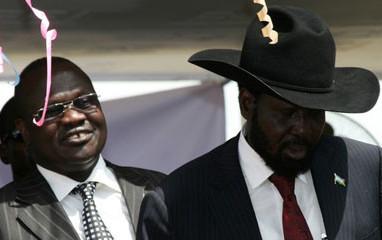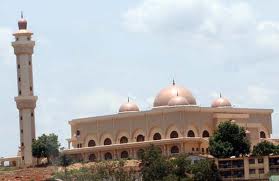Chad and Sudan: Is the Proxy War Over?
When clashes broke out recently (24 April) between the Chadian army and a new rebel group the FPRN, led by Adam Yacoub (who broke from Timan Erdimi’s UFR coalition last year), it wasn’t long before some international observers were asking “Is this the end of the rapprochement between Chad and Sudan?” Independent confirmation of what happened has been difficult to come by, but it’s generally agreed the government’s figure of one hundred dead on the rebel side and nine government soldiers may not be too wide of the mark.
The significant point here is that these rebels were based inside Chad (in the area north of Tissi on the border with CAR), and as yet there has been none of Deby’s characteristic invective – calling them Sudanese mercenaries and Omar el-Bashir “˜le grande traitre’ (the Big Traitor). In fact on 30th April Deby issued a gushing statement congratulating Bashir on his election victory. However acute their disappointment with Erdimi, it seems at this point that the FPRN are just a small frustrated splinter group, not a new incarnation of Sudan’s proxy war in Chad.
This fits in with the narrative that January’s rapprochement between Chad and Sudan was genuine, and may well last. After all, as long term allies (Deby launched his takeover of Chad in 1990 from inside Darfur), it makes perfect sense for them to want to stabilise the situation. Neither of them is capable of fully controlling the desert border regions, as the Darfur conflict and displacements in eastern Chad have attested. After a surprisingly peaceful passing of April’s election, Bashir would be risking much by renewing his support to the Chadian rebels. Likewise, Deby’s message to JEM was unequivocal – after the January agreement he despatched a team to the area around the Oure Cassoni refugee camp near Bahai in the far north east, and told JEM to get out of Chadian territory. Although there are some Zaghawa in positions of power in N’Djamena who are unhappy at this new attitude to JEM, Deby has again demonstrated his talent for political survival.
But while the rebels seem hobbled, questions still remain about security, especially following Chad’s decision to not renew the mandate of Minurcat (UN mission to Chad and CAR). While many in the UN realised the mandate renewal discussions in March 2010 would not be easy, few foresaw Deby’s declaration while visiting Bashir in Khartoum that Minurcat had been a “˜failure’. He seems to believe that the disagreements between the Chadian government, NGOs and the UN over how to prevent attacks against humanitarian workers, which reached their highest level in late 2009 (two people were killed and four taken hostage), were damaging Chad’s image; and that rapprochement with Sudan was the perfect opportunity to take matters into his own hands.
At the time of writing it looks as if the new head of Minurcat, Moroccan Yusuf Mahmoud, has found a short-term compromise which will see about two thousand troops staying for the next few months, with a view to increasing the number of civilian gendarmes (Detachement Integree de Security DIS). It’s hoped that will provide some security for the quarter of a million refugees and 150,000 displaced Chadians in the east, until Chad and Sudan’s joint border force (brought to life in January’s agreement) is fully operational. Anecdotal evidence suggests that the security situation in the east has improved over the last few months.
In February 2008, Deby was just hours from being chased from the Presidential Palace, but he has staged an astonishing comeback, using oil revenues to bolster his national army who all but destroyed the rebels. At the same time Bashir has been squeezed by his need for a peaceful election and referendum on the south’s independence. Despite the many false starts, there is reason to be optimistic that the proxy war between Chad and Sudan may well be over.
Jane Smith is a journalist who worked in Chad for 18 months.






